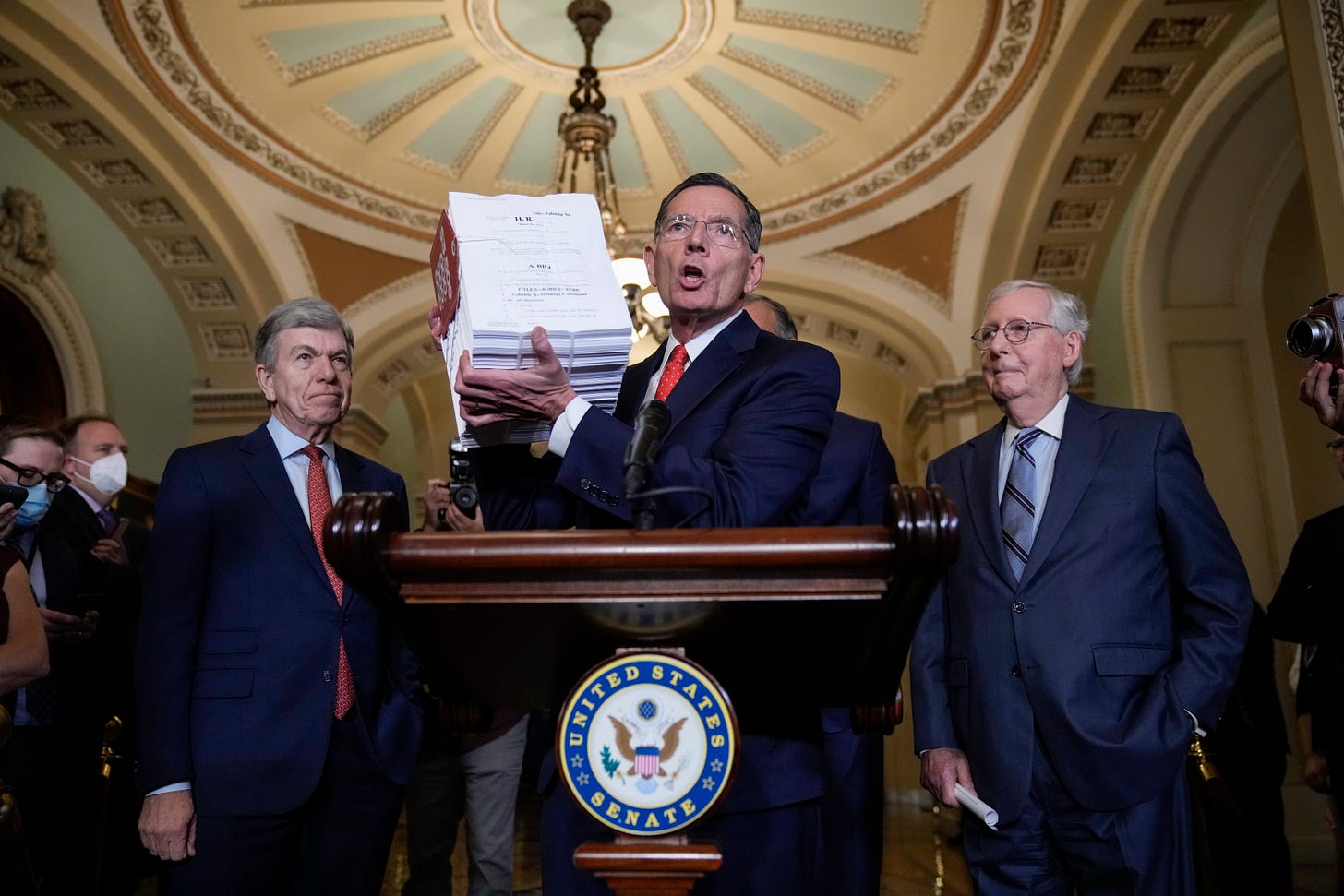What Was the Debt-Ceiling Showdown Really All About?
The answer is: Democracy.

The Western liberal tradition to which we belong has as it foundation two things: proportional representation of the will of the people and capitalism.
Both are equally as important. One cannot survive without the other. Yes, the Europeans may be a bit more socialist leaning, but democracy has never survived true socialism or communism. And there are no precedents for capitalism flourishing in systems that reject proportional representation.
In essence, any vote against capitalism—that is, capitalism at its core, not its regulatory edges—is anti-democratic. And vice versa. Yet, voting against capitalism is what what the entire Republican Senate minority just did.
No thing, and no person, has economic value in a vacuum. All value—like all motion—is relative. Value (and thus price) is the relationship of one thing to another.
The entire discipline of what we call “finance” is an exercise in making relative valuations. But to start, finance had to settle on a reference point—a “risk free” thing which could be used as a yardstick for everything else, so that everything else can be priced accordingly. While everyone knows there is no such thing as a “risk free” investment in an absolute sense, the mechanism that finance chose made sense: government bonds. In particular, U.S government bonds. And in even more particular, the 10 year Treasury yield.
Every mortgage, every auto loan, every wage—everything is priced relative to the value of the risk-free rate—the U.S. 10 year Treasury yield.
The reason why government bonds are considered risk free is because they, by definition, are. A bond is an obligation of a country to pay a holder of that obligation at a future date. That obligation is met through something else owned by the country—meaning currency. It is impossible for a country to default on its own bonds, because it could just create more currency to meet the obligations.
Which means that there is only one way to default on sovereign debt—willfully.
But the debt!
Perhaps one of the most disingenuous (but effective) arguments put forward in modern politics was the case for conservative “fiscal responsibility.” You have to manage your own debt, so why shouldn’t the government?
That line makes sense to people. Building on this parochial bedrock, conservatives flirted many times with the idea of the businessman-president until finally nominating Donald Trump, a bankruptcies vitamin hawker who played the role of businessman on TV.
Under President Trump the size of government grew to its largest levels since the 1960s. Never mind the fact governments probably shouldn’t be run like a business, or a household because it turns out that there is no constituency for fiscal conservatism. Despite what conservatives have said for 40 years, their revealed preference is clearly for bigger government and more spending.
And you know what? As a policy matter, that’s okay.
Can debt grow so large it topples the financial order? Sure. But as of 2021, in sum, the United States has a net worth (assets-liabilities) of $132 trillion.
The Biden administration’s proposal to take on $3.5 trillion of national debt over 10 years to reduce significantly the greatest risk to our mature civilization—which is wealth inequality—would lower America’s national net worth by around 2.25 percent. That’s it.
We would be spending 2.25 percent in order to cut child poverty in half. Would you as an individual donate 2.25 percent of your personal net worth to cut child poverty in half? I bet you would. I bet you would even donate 2.25 percent of your net worth over a 10 year period to cut child poverty in half for just one family. Prices are relative and this price isn’t all that high relative to the good we’d be purchasing.
Of course, there could be side effects. The plan might not cut child poverty in half. There could be inflation. There may be prudential reasons not to enact it. But to argue that the size is so onerous is wrong-headed.
Back to willful default. The Senate Republicans who now fashion themselves as champions of fiscal responsibility were willing to turn the risk free rate—on which every asset is priced—into a non-risk free rate by refusing to raise the debt ceiling.
They were voting for America to default. This isn’t just hypocritical. It is also another attack on democracy. Because if the risk free rate had been made risky, then then financial calamity would have been unspeakable. Because again: Functioning democracy is intertwined with functioning capital markets.
During the first and second Trump impeachments, a number of Republicans voted to remove Trump, and so we thought, Hey, as long as we have Mitt Romney and the others, there’s hope.
But the problem is that these Republicans aren’t thinking expansively enough about democracy. About what democracy is. About what democracy requires. It’s not just rejecting Donald Trump’s cult of personality. It’s understanding and supporting the policies which make democracy possible. Even when such support runs counter to the party’s daily marching orders.
All 50 Republicans in the Senate voted not to raise the debt ceiling and therefore willfully default on America’s debt. That vote was just as antithetical to a functioning democracy as was the votes to decertify the election results on January 6.
For democracy and capitalism to survive, they need each other. And we need a better class of Republicans. Even the “good Republicans.”

